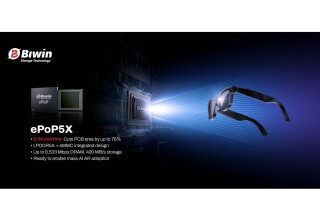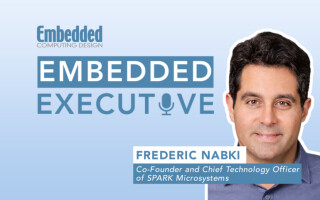How consumer demand - and science fiction - shapes the future of electronics
January 04, 2017

With the modern world moving towards self-driving cars, smart homes, and the Internet of Things (IoT), the electronics industry is tasked with turning...
With the modern world moving towards self-driving cars, smart homes, and the Internet of Things (IoT), the electronics industry is tasked with turning dreams into reality. As miniaturization progresses exponentially according to Moore’s Law, increasingly complex electronic designs push the boundaries to make better electronic products that will make life easier for consumers.
However, the industry itself is not the only driver of progress. Consumers look to popular futuristic science fiction, such as Star Trek or Back to the Future, for some far-fetched inspiration. With demands for self-lacing trainers and hoverboards comes the realization that consumers and modern consumer culture play a huge role in determining the direction of innovation.
While the world still waits for teleportation devices, flying cars, and time machines, we can thank science fiction – and the consumers who consume it – for creating the demand for countless modern technologies such as intelligent power conversions, wireless networks, and solar energy.
Powering your life
While progress may seem slow at times, it’s amazing how far the world has come in a relatively short space of time. We’ve moved from analog landlines to touchscreen smartphones, from fax machines to super-fast wireless broadband, and from coal or wood burners to smart thermostat we can control temperature from a mobile phone – all in the space of living memory.
At the heart of this innovation and progress lies increasingly complex electronic components, with most modern semiconductors containing billions of transistors in the space of a human thumbnail. From digital motor controllers for variable speed drives to intelligent power modules, semiconductors are the key components for continually increasing energy efficiency, reliability, and performance. Anywhere, any place, and any time you use an electric powered device, semiconductors help make that device smaller, lighter, more efficient and easier to use.
A glimpse into the future
Widespread recognition of the important role electronics plays in modern life can be seen in the huge popularity of exhibitions such as the Consumer Electronics Show (CES), which showcases the best of modern technology each year. Several hundred thousand people are expected to descend on Las Vegas to attend this year’s CES. Many of these visitors will want to get a sneak peek of the cutting-edge semiconductor technology behind innovative solutions that will shape the way people live, work and play in the future.
At CES this year, Infineon will be showing its power solutions and demonstrating products from the world’s most advanced hair dryer to state-of-the-art audio amplifiers. Find out more here.





